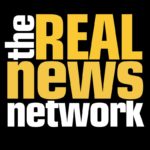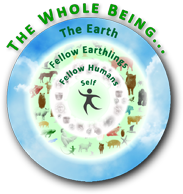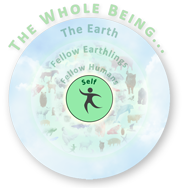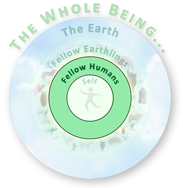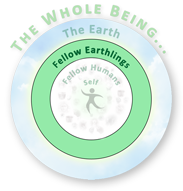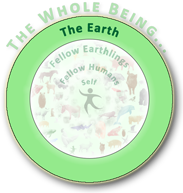Resource Library
To narrow down the list to only resources personally endorsed by CNCL, tick the “CNCL-Endorsed” box.
Please let us know if you find any errors or dead links.
Click here
for a list of…![]()
Broad-Coverage Independent News
& Media Sites
“The Network of Spiritual Progressives is a broad network that seeks to transform our materialist and corporate-dominated culture into a loving and just society. We envision a world based on a New Bottom Line of awe and wonder at the universe where everyone is seen as fundamentally valuable regardless of their role in the marketplace. We call this framework “a spiritual progressive worldview.” Our network includes environmentalists, social activists and people of all walks of life who identify as religious, spiritual, atheist, and secular humanist. We are the interfaith advocacy arm of Tikkun magazine.” Book: “How do you define the good life? For many, success is measured not by health and happiness but by financial wealth. But such a worldview overlooks the important things in life: personal contentment, family time, spirituality, and the health of the planet and those living on it. A preoccupation with money and possessions is not only unhealthy, it can also drain the true joy from life. In recent years, millions have watched their American Dreams go up in smoke. The international financial collapse, inflation, massive layoffs, and burgeoning consumer debt have left people in dire financial straits—including John Robbins, a crusader for planet-friendly food and lifestyle choices, who lost his entire savings in an investment scam. But Robbins soon realized that there was an upside to our collective financial downturn: Curtailed consumerism could lead us to reassess our lives and values. The New Good Life provides a philosophical and prescriptive path from conspicuous consumption to conscious consumption. Where the old view of success was measured by cash, stocks, and various luxuries, the new view will be guided by financial restraint and a new awareness of what truly matters. A passionate manifesto on finding meaning beyond money and status, this book delivers a sound blueprint for living well on less.” “Love Is Stronger Than Hate. “Nonviolence is not the recourse of the weak but actually calls for an uncommon kind of strength; it is not a refraining from something but the engaging of a positive force,” renowned peace activist Michael Nagler writes. Here he offers a step-by-step guide to creatively using nonviolence to confront any problem and to build change movements capable of restructuring the very bedrock of society. Nagler identifies some specific tactical mistakes made by unsuccessful nonviolent actions such as the Tiananmen Square demonstrations and the Occupy protests and includes stories of successful nonviolent resistance from around the world, including an example from Nazi Germany. And he shows that nonviolence is more than a tactic—it is a way of living that will enrich every area of our lives.” “A partnership of nonviolence training organizations and individuals offering educational programming for nonviolent transformation in our lives and our world” Resource directory: “A partnership of nonviolence training organizations and individuals offering educational programming for nonviolent transformation in our lives and our world” “A non-profit organization whose mission is to educate the general public by providing a forum that strives to highlight issues of relevance to human rights, national struggles, freedom and democracy in the form of daily news, commentary, features, book reviews, photos, art, and more.” Articles from The Nonviolent Activist Magazine » NVA July – August 2001 Book: “The Path of Most Resistance: A Step-by-Step Guide to Planning Nonviolent Campaigns is a practical guide for activists and organizers of all levels, who wish to grow their nonviolent resistance activities into a more strategic, fixed-term campaign. It guides readers through the campaign planning process, breaking it down into several steps and providing tools and exercises for each step. Upon finishing the book, readers will have what they need to guide their peers through the process of planning a campaign. This process, as laid out in the guide, is estimated to take about 12 hours from start to finish. The guide is divided into two parts. The first lays out and contextualizes campaign planning tools and their objectives. It also explains the logic behind these tools, and how they can be modified to better suit a particular group’s context. The second part provides easily reproducible and shareable lesson plans for using each of those tools, and explores how to embed the tools in the wider planning process.” “The mission of the Peace Abbey Foundation is to create and install public works of art that promote peace and nonviolence; and to administer and care for Abbey Interfaith Peace Chaplaincy, The Pacifist Memorial, The Animal Rights Memorial, Abbey Cremation Cemetery for Conscientious Objectors and the National Registry for Conscientious Objection. Throughout the year, the Foundation presents the Int’l Courage of Conscience Award at conferences and peace ceremonies and extends the impact of the Peace Seeds interfaith prayers for peace through their dissemination worldwide. We conduct and support programs that bring together and promote the cooperation of people of different faith traditions and non-theists as well. We do this in the spirit of the 1986 International Day of Prayer for World Peace, as celebrated that year by religious leaders from around the globe in Assisi, Italy. The Foundation supports grassroots efforts to link the many dimensions of the peace movement with a committed emphasis on human rights and animal rights. We recognize these two dimensions of intrinsic rights as inextricably interconnected, just as social and economic justice require environmental sustainability and deep respect for the biosphere. Central to our universalist approach is the premise that nonviolence is the most effective and long-term strategy in addressing the multitude of challenges that now threaten our increasingly imperiled planet.” “The Peace Alliance empowers civic action toward a Culture of Peace…One of the unique things that the Peace Alliance does is to focus not only on doing, and also being. We shift human understanding toward empathy, compassion and connection, thus fostering interdependence among citizens and dialogue toward common ground and peaceful solutions to conflict. This is the only approach that will work. Our Peace Alliance Council Leads establish what they feel are the clear and direct actions, through education, advocacy and collaboration, to expand and reinforce this shift to compassionate understanding and an expanded culture of peace.” “Vision: Peaceful local, national and global communities. Mission: To build peaceful relationships among people of all ages and cultures – from personal to global – through education , research and action. Values: In pursuing this mission we are committed to honour Te Tiriti O Waitangi, human rights and the peaceful resolution of conflict and to modelling peace-making values within the Foundation and beyond. “ “When the Soviet Union collapsed in 1990, Cuba’s economy went into a tailspin. With imports of oil cut by more than half – and food by 80 percent – people were desperate. This film tells of the hardships and struggles as well as the community and creativity of the Cuban people during this difficult time. Cubans share how they transitioned from a highly mechanized, industrial agricultural system to one using organic methods of farming and local, urban gardens. It is an unusual look into the Cuban culture during this economic crisis, which they call “The Special Period.” The film opens with a short history of Peak Oil, a term for the time in our history when world oil production will reach its all-time peak and begin to decline forever. Cuba, the only country that has faced such a crisis – the massive reduction of fossil fuels – is an example of options and hope.” Book: “The idea of non-violence (passive-resistance) has always seemed beautiful but too good to be true. As a practical proposition it arouses scepticism and ridicule. But Mr Gregg is strangely convincing. He marshals the whole weight of contemporary knowledge,and uses the experience of Gandhi,who has employed non-violence methods on a wider scale and with greater success than any other figure in history. Non-violent resistance is the doctrine of absolute pacificism. In theory, it recognizes no use of violence as legitimate in practice it includes all human relations,national and social as well as individual. Contents Include Modern Examples of Non-Violent Resistance Moral Jiu-Jitsu What Happens Utilising Emotional Energy How is Mass Non-Violent Resistance An Effective Substitute for War The Class Struggle and Non-Violent Resistance Non-Violence and the State Further Political Aspects Biological Considerations Doubts and Queries Preperation for Non-Violence Further Understanding Self Discipline Group Training and Discipline Notes by Chapters” “A gripping, deeply informative account of the plunder, hypocrisy, and mass violence of plutocracy and empire; insightful, historically grounded and highly relevant to the events of today.” “This is the final dharma talk of the 2000 21-Day Retreat, The Eyes of the Buddha, offered from Lower Hamlet at Plum Village by Thich Nhat Hanh on June 20, 2000. The primary theme of the dharma talk is the Noble Eightfold Path. In Part I, we begin with an introduction to deep listening – protected by compassion – followed by a teaching on the Noble Eightfold Path threaded with teachings on the Five Mindfulness Trainings. 1.Right View 2.Right Thinking 3.Right Speech 4.Right Action 5.Right Diligence 6.Right Livelihood 7.Right Mindfulness 8.Right Concentration. In Part II, beginning at 1-hour and 8-minutes we turn to the topics of violence, nonviolence, UNESCO’s Manifesto 2000, and dependent co-arising.” Book: “Excerpts from Thoreau’s journals concerning civil disobedience, conscience, law, government, slavery, war, and economics. These passages are what Thoreau considered to be “the price of freedom” – his attempts to mine the richest vein of observations about human conscience and political philosophy, and to present what he found free from all censorship.” “A voice for peace, social justice, and the common good! Since 1909, The Progressive has aimed to amplify voices of dissent and those under-represented in the mainstream, with a goal of championing grassroots progressive politics. Our bedrock values are nonviolence and freedom of speech. Based in Madison, Wisconsin, we publish on national politics, culture, and events including U.S. foreign policy; we also focus on issues of particular importance to the heartland. Two flagship projects of The Progressive include Public School Shakedown, which covers efforts to resist the privatization of public education, and The Progressive Media Project, aiming to diversify our nation’s op-ed pages. We are a 501(c)(3) nonprofit organization. We publish multiple stories every day on our website, and also produce a bimonthly magazine featuring investigative reporting, cultural and political analysis, and poetry. Recent issues have focused on climate change, and being “othered” in today’s America.” Book: “Through an absorbing investigation into recent, high-profile scandals involving one of the largest kosher slaughterhouses in the world, located unexpectedly in Postville, Iowa, Aaron S. Gross makes a powerful case for elevating the category of the animal in the study of religion. Major theorists have almost without exception approached religion as a phenomenon that radically marks humans off from other animals, but Gross rejects this paradigm, instead matching religion more closely with the life sciences to better theorize human nature. Gross begins with a detailed account of the scandals at Agriprocessors and their significance for the American and international Jewish community. He argues that without a proper theorization of “animals and religion,” we cannot fully understand religiously and ethically motivated diets and how and why the events at Agriprocessors took place. Subsequent chapters recognize the significance of animals to the study of religion in the work of Ernst Cassirer, Emile Durkheim, Mircea Eliade, Jonathan Z. Smith, and Jacques Derrida and the value of indigenous peoples’ understanding of animals to the study of religion in our daily lives. Gross concludes by extending the Agribusiness scandal to the activities at slaughterhouses of all kinds, calling attention to the religiosity informing the regulation of “secular” slaughterhouses and its implications for our relationship with and self-imagination through animals.” “The Radiation and Public Health Project (RPHP) is a nonprofit educational and scientific organization, established by scientists and physicians dedicated to understanding the relationships between low-level, nuclear radiation and public health.” “The Real News Network (TRNN) produces independent, verifiable, fact-based journalism that engages ordinary people in solving the critical problems of our times. As legendary journalist Ida B. Wells said, “The people must know before they can act, and there is no educator to compare with the press.” We examine the underlying causes of the chronic problems, and investigate and report on effective solutions and models for change. We don’t just cover people in high office or limit news to the partisan horse race for power. People who fight for human rights and work for solutions are newsmakers. We believe that real change will be driven by the people who need it most. While we report on and investigate all important issues of social and economic concern, we consider the climate change crisis an existential threat. In all of our programming and journalism, the impact of environmental degradation and the climate crisis, especially on marginalized people, and the urgency of finding solutions will be front and center. Our motto is “The Future Depends on Knowing.””Found 1617 Results
The Network of Spiritual Progressives

The New Good Life: Living Better Than Ever in an Age of Less
The Nonviolence Handbook: A Guide for Practical Action
The Nonviolence Training Hub

The Nonviolence Training Hub – Training Partners

The Palestine Chronicle
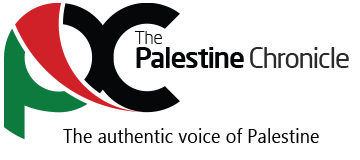
The Parameters of Nonviolent Action: What Makes an Action Nonviolent
![]()
The Path of Most Resistance: A Step-by-Step Guide to Planning Nonviolent Campaigns

The Peace Abbey
![]()
The Peace Alliance
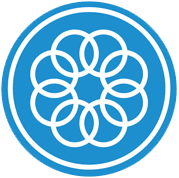
The Peace Foundation

The Power of Community: How Cuba Survived Peak Oil (2006)
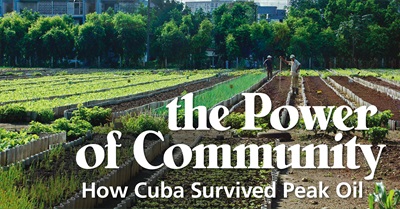
The Power of Non-Violence
The Power Principle: Corporate Empire and the Rise of the National Security State (2012)
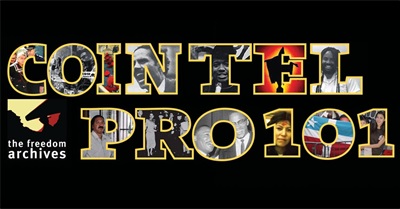
The Practice for Engaged Buddhism
![]()
The Price Of Freedom: Political Philosophy From Thoreau’s Journals
The Progressive
The Question of the Animal and Religion: Theoretical Stakes, Practical Implications
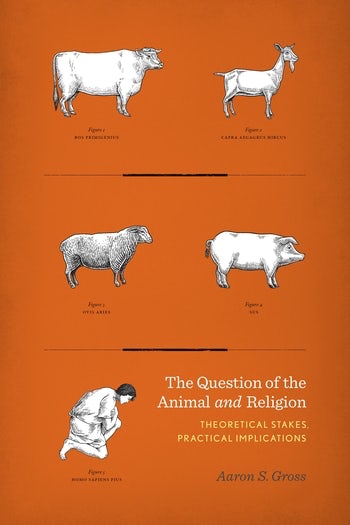
The Radiation and Public Health Project (RPHP)

The Real News Network
